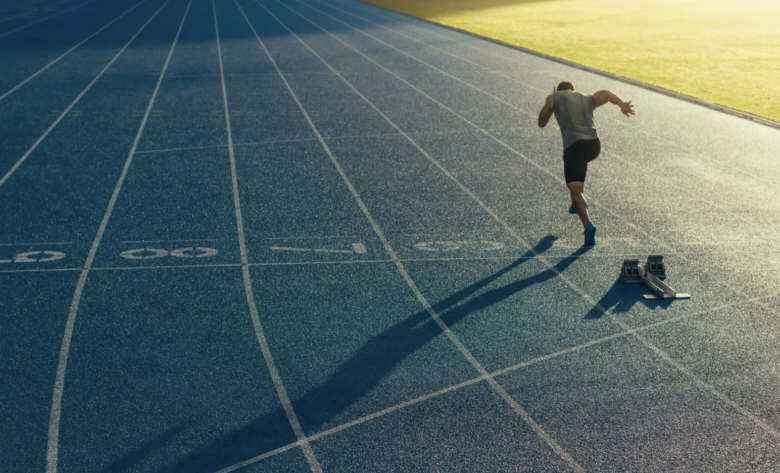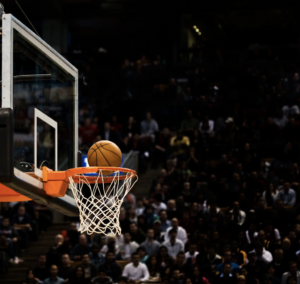A new direction is needed in African sports, according to Letsile Tebogo, the Olympic sprint hopeful from Botswana.
Letsile Tebogo of Botswana celebrates after winning silver in the 100-meter event at the 2023 World Athletics Championships in Budapest.
As the track standout representing Botswana in the 2024 Olympics, Letsile Tebogo has lofty ambitions for Africa.
Despite winning two gold at the World Championships last year, the 20-year-old is keeping his cool as he turns his focus to the Paris Games this year, which begin on July 26.
On the BBC World Service, Tebogo told Newsday, “I don’t have any goals for the Olympics because I haven’t thought about what will happen.” According to her.
I need to assess my current situation and then set my goals. I will reveal my goals later on if I feel like it.
The fact that Tebogo is representing a country that has won only two medals since its 1980 Olympic debut—neither of which were gold—is likely contributing to his guarded demeanor.
In 2012, the nation from southern Africa produced its first Olympic medalist as Nijel Amos took home silver in the men’s 800m.
Nine years after the 2020 Tokyo Olympics were postponed, a men’s 4x400m relay team comprised of Baboloki Thebe, Zibane Ngozi, Isaac Makwala, and Bayapo Ndori won bronze.
It is only fair that Tebogo live up to these high expectations now that everyone is watching.
Success at the international Under-20 level, when he won the 100-meter and 200-meter races in 2021 and 2022, is starting to rub off on him as he moves up to the senior level.
Last year at the World Championships in Hungary, Tebogo won not only the 200-meter bronze medal, but also the 200-meter silver medal.
Unable to compete with Bolt’s
Tebogo looks up to the late, great Usain Bolt, who is often compared to him.
He attributes the Jamaican’s eight sprinting Olympic gold medals to his “relaxed” approach toward competition.
Just like them, Tebogo aims to keep their minds focused and off social media during crucial moments.
“A lot of people decide to say whatever they want on social media and it can damage the mental health,” Tebogo remarked.
As a sprinter, your ability to focus and perform at a high level is directly related to your mental health.
“There will always be good people and bad people.”
After posting his first notable 100-meter and 200-meter times of 10.68 and 21.12 seconds, respectively, in 2019, Tebogo finally committed full-time to athletics, despite early potential as a player and athlete.
“Athletics was a part-time thing,” stated the athlete. All the pieces started to fit together and shift in 2019. I doubted my own judgment as I sat down.
I couldn’t play a game outside of Botswana’s main city despite playing football for over five years.
“With athletics, I was going abroad and that was when I took that decision to transform from being a footballer to being an athlete.”
Thanks to his natural abilities and his achievements, Tebogo breezed into the elite level after 2019.
“I qualified for junior events because I ran crazy times from the age of seven to 16 or 17,” the participant said. A recommendation came my way after certain doors opened. It was very simple for me.
Building the infrastructure of Africa
African sprinting is thriving as the continent’s athletes have been the show stoppers at the last two World Championships.
Luxolo Adams and Akani Simbine of South Africa, Joseph Fahnbulleh of Liberia, and Ferdinand Omanyala of Kenya are now the center of attention, after years of concentration on American sprinters.
“The change I’ve seen is people are now more invested and interested in coming to see what Africans really do as sprinters,” he added.
The affection he has received from admirers throughout Africa and his native nation of Botswana has left Tebogo, who goes by the moniker “Schoolboy,” in amazement.
“It means a lot to me because I never imagined myself representing the country,” remarked the politician.
It has surprised me, to be quite honest. I think I’m doing a good job with it. Knowing that the whole nation and even Africa are behind me is wonderful. I can’t believe it.
But Tebogo is hoping that other African athletes will take inspiration from his achievement and invest in their own athletic development, as many African countries do not have the means to regularly produce athletes of world-class quality.
“There is something we have to fight through,” he pointed out. Some materials aren’t available in Africa; they’re only found in Europe and the US.
A track has to be built so that Africans may train inside. Rehabilitative initiatives in Africa should be permitted instead of sending them to France or Europe.
New facilities should be constructed for the athletes since there are only four or five immediately recognized tracks throughout Africa.
“Those tunes should be amplified. The best use of our resources is to maximize their potential.



